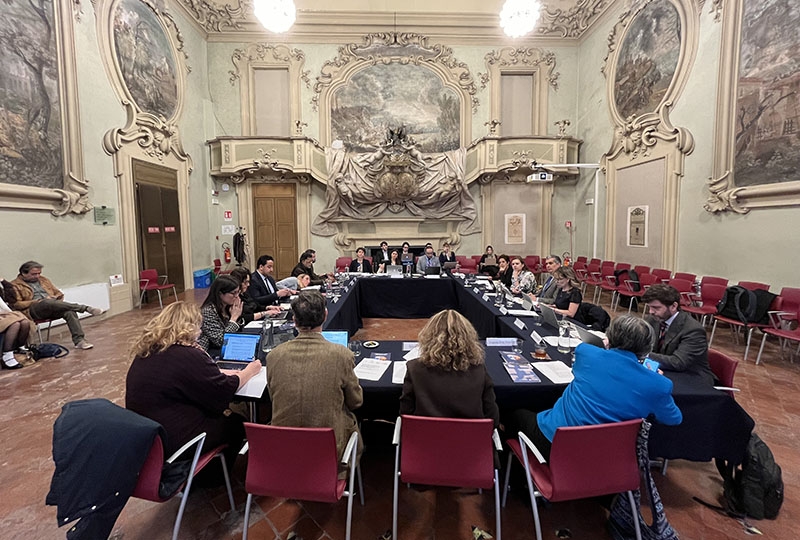29 April 2024
On April 18, 2024, the Geneva Human Rights Platform (GHRP) and the Department of Legal Studies at the University of Bologna, supported by the Italian Ministry of Foreign Affairs and International Cooperation, hosted the Expert Roundtable on Data Planning and Collection by National Mechanisms for Implementation, Reporting, and Follow-up (NMIRFs), in Bologna, Italy.
Dr Domenico Zipoli, Project Coordinator of the Geneva Human Rights Platform, travelled to Bologna to co-host this event, which focused on the integration of local and regional governments (LRGs) and national statistical systems in NMIRF-led data collection efforts, with NMIRF delegates from Italy, Portugal, Paraguay and Morocco in attendance. Also present were representatives from Italian local and regional governments, the Italian National Statistics Office, the OHCHR, think tanks, academia and National Human Rights Institutions (NHRIs) working on the link between LRGs, National Statistical Offices (NSOs) and NMIRFs.
This event is part of a larger multilateral initiative under the scope of Human Rights Council resolution 51/33, propelled by Paraguay and Brazil in 2022. This resolution encourages States to establish or strengthen NMIRFs for further compliance with human rights obligations and commitments and to share good practices and experiences in their use for the elaboration of public policies and plans, at all levels, with a human rights approach.








